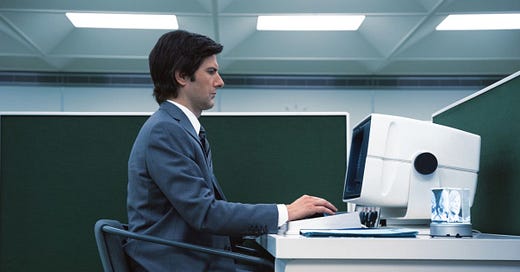Review: Severance
Adam Scott stars in Severance on Apple TV+. It'll cure your case of the Mondays.

How do you maintain your work/life balance? That has been a question many of us have grappled with over the past two years while working from home during the pandemic. There's a lot more out of hours work happening, expectations of presentee-ism higher than before, fewer sick days taken, and a general sense of being always-available. After all, without …




